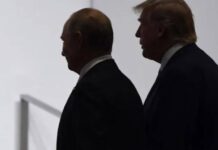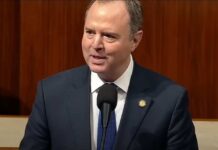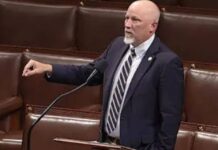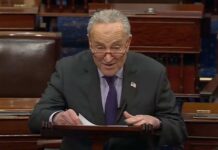
Election season is heating up quickly. And it looks like things are not going so well for the Biden team.
And they have suffered an unexpected election season loss.
In a stunning rebuke to President Biden’s green agenda, the House of Representatives voted Thursday to overturn his controversial decision to waive “Buy America” requirements for electric vehicle (EV) charging stations funded by American taxpayers.
This vote underscores a deepening divide between environmental aspirations and concerns about American jobs and national security.
The 209-198 vote, with two Democrats joining Republicans, sends a clear message to the White House:
“Buy America” reigns supreme.
This victory for proponents of domestic manufacturing comes after the Senate passed a similar resolution in November, fueled by bipartisan concerns that Biden’s waiver would benefit China—the dominant player in the EV charger market.
Leading the charge against the waiver was House Republican Chair Elise Stefanik, who lambasted it as a “pro-Communist China rule” that undermines American businesses and empowers its adversaries.
Her fiery statement echoed throughout the debate, resonating with concerns about China’s economic and technological dominance.
“Joe Biden and his America Last agenda would sooner invest taxpayer money into Communist Chinese EV chargers than American-made products,” Stefanik declared.
This sentiment resonated with many, particularly as America grapples with supply chain disruptions and rising concerns about dependence on foreign powers.
Proponents of the waiver, like Transportation Secretary Pete Buttigieg, argue it’s crucial to accelerate EV adoption by swiftly expanding the nationwide charging network.
They view stringent “Buy America” requirements as potential roadblocks to achieving Biden’s ambitious goal of 50% of new car sales being electric by 2030.
However, critics counter that sacrificing American jobs on the altar of speed is a dangerous gamble.
They point to China’s dominance in the EV charger market and argue that Biden’s waiver would simply funnel taxpayer dollars into subsidizing its competitor.
Moreover, they warn that relying on China for critical infrastructure creates national security vulnerabilities, particularly in sensitive sectors like energy.
The debate boils down to a fundamental question:
Can America achieve its green goals while simultaneously protecting its economy and national security?
While the White House insists the waiver is essential for rapid EV adoption, the House vote suggests a growing skepticism towards sacrificing American jobs and industry in the name of climate change.
This split is unlikely to disappear. With the resolution heading to Biden’s desk for a certain veto, the battle lines are drawn.
The coming months will see renewed sparring between proponents of green jobs and those advocating for American manufacturing, each side wielding arguments about climate and economic prosperity.
This clash promises to shape not only the future of EV charging but also the broader contours of America’s environmental and economic policies.
Stay tuned to the Federalist Wire for all of your news needs.



















